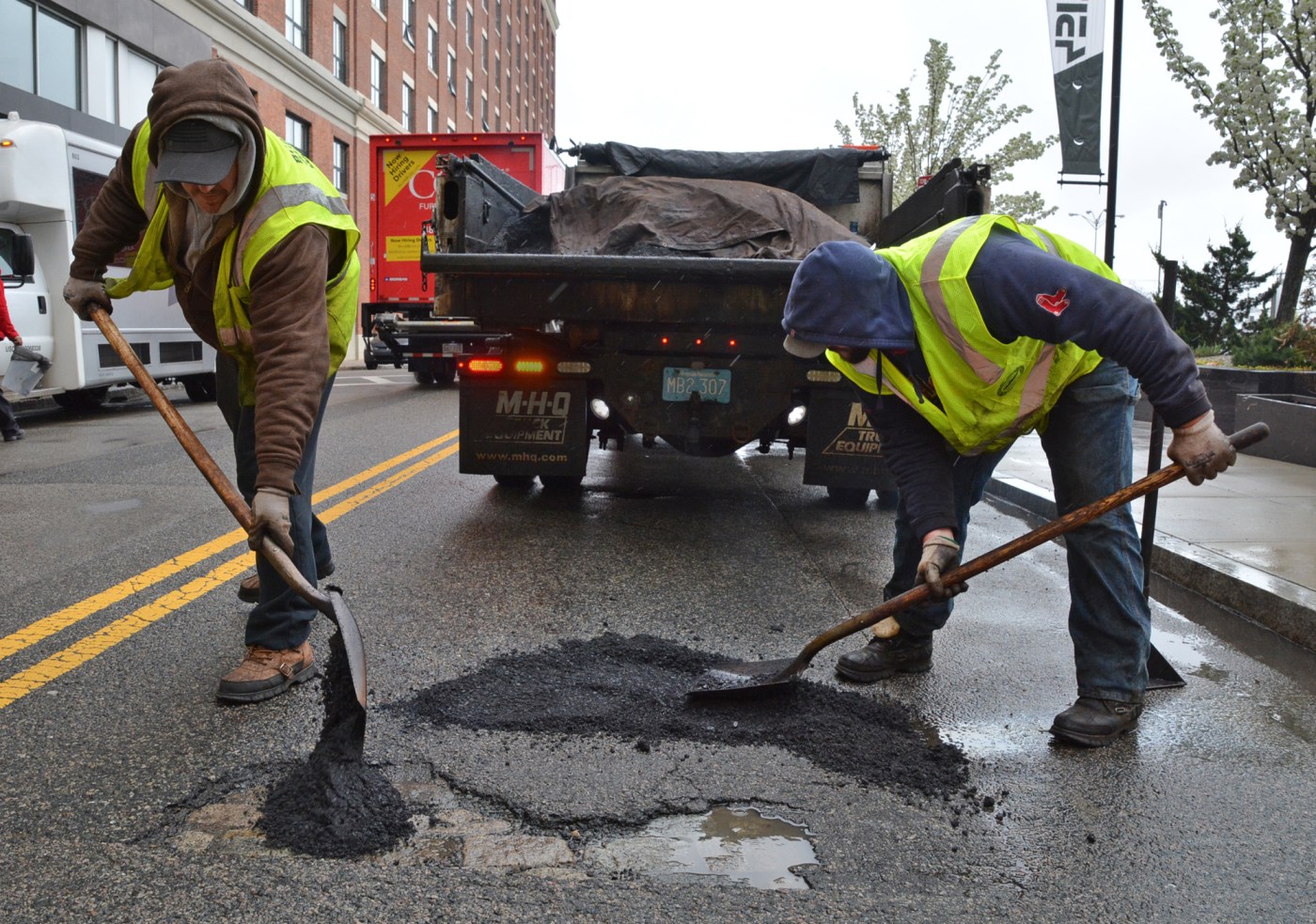
Inflation eroding road repair money
The House’s point person on transportation did not even need to hear from a single city or town leader Tuesday before accurately forecasting how most would react to the latest annual road and bridge funding bill: that it simply did not offer enough money.
“We do tend to hear from some municipal officials each year — and it is sometimes as predictable as the birds coming north in the spring — that it’s never enough,” Transportation Committee Co-chair Rep. William Straus said as his panel dove into a public hearing on Gov. Maura Healey’s two-year, $400 million Chapter 90 proposal. “Of course it’s never enough. The unmet needs in terms of transportation projects and maintenance work is something I don’t think we’ll ever see fully funded.”
In what has become a yearly tradition on Beacon Hill, administration officials pitched the Transportation Committee on this year’s Chapter 90 bill, which would fund the state reimbursement program supporting local road and bridge repairs.
Healey’s bill would approve two years of money in a single swoop, fulfilling one major request municipal leaders have repeatedly made, without altering the $200 million per year allotment that has been the norm for more than a decade despite prices rising over that period.
Municipal officials continue to argue that $200 million accomplishes less today than it did when lawmakers first funded the program at that level in fiscal 2012, pointing to overall inflation and especially rising construction costs that have eaten away at their purchasing power.
Straus’s prediction quickly wound up coming true.
“You know, we are like the birds coming north, I guess, every year because there never is enough money. I’m sorry, Chairman Straus,” said Athol Town Manager Shaun Suhoski.
“No, I agree with you,” Straus replied.
Suhoski said as much as 90% of all road miles in the state fall under local jurisdiction and require maintenance at the municipal level. He added that cities and towns have put their own dollars on the table to match Chapter 90 funds and utilized “all of the tools” Beacon Hill has offered.
“But when you look at a Chapter 90 baseline that has declined in value by 65% or $131 million since the 2012 year that $200 million baseline was set, we’re really not asking for more money,” Suhoski said. “I think we’re seeking [for] the Legislature and the governor, and I need to keep the administration forefront, to undertake all options to increase that baseline.”
Calls for more funding came not just from individual city and town leaders but from their major industry groups, too.
Adrienne Núñez, a legislative analyst with the Massachusetts Municipal Association, urged the committee to continue “building on these investments” while warning about “a considerable reduction in purchasing power that communities continue to face.”
Georgia Barlow, a government affairs specialist with the Metropolitan Area Planning Council, called on the Legislature to boost Chapter 90 funding to at least $350 million per year “to more closely match the needs of infrastructure projects across the commonwealth.”


